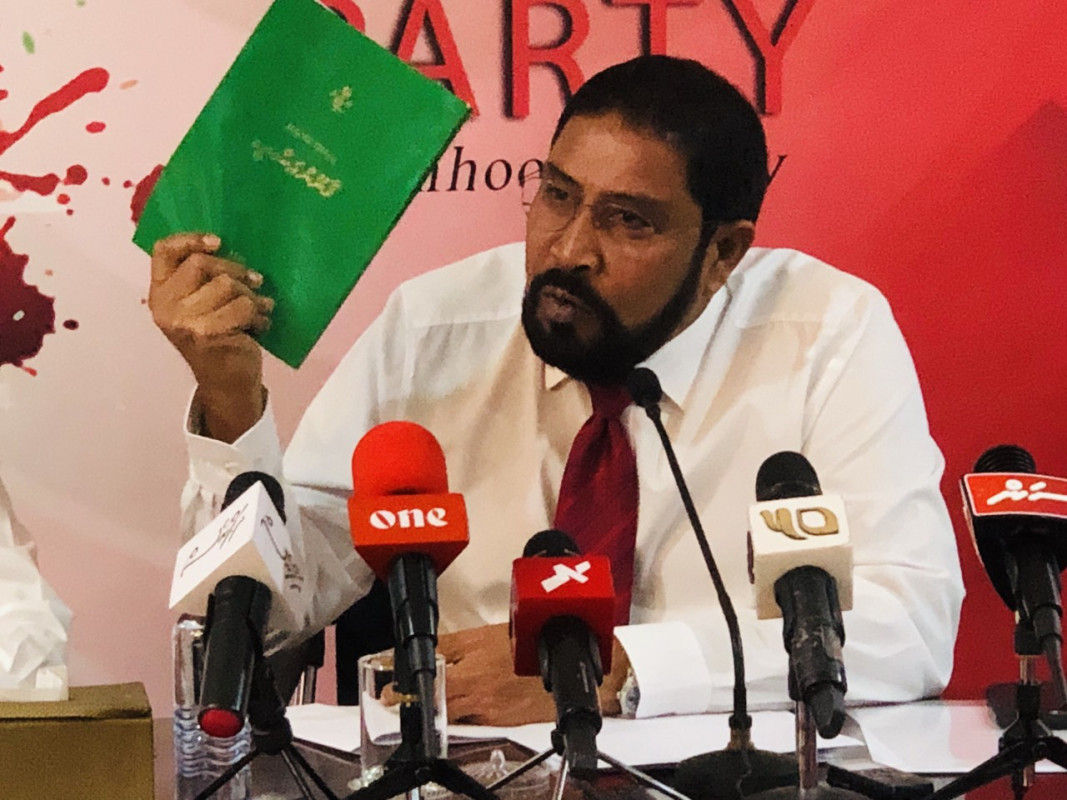Speaker Gasim admits holding up ‘unconstitutional’ bills
The legal profession bill and presidential commissions bill remain stalled.

11 Mar 2019, 09:00
Speaker of Parliament Gasim Ibrahim on Saturday night defended his refusal to put government-sponsored legislation on presidential commissions and the legal profession to a vote.
Both bills contained provisions that contravene the constitution, the Jumhooree Party leader contended at a press briefing.
The speaker was asked about President Ibrahim Mohamed Solih’s criticism over the failure to pass the bills despite the four-party ruling coalition’s majority.
“This is not what you voted for in the presidential election. You voted for us to work together to fulfil our pledges,” Solih said Saturday on the campaign trail with Maldivian Democratic Party candidates.
Become a member
Get full access to our archive and personalise your experience.
Already a member?
Discussion
No comments yet. Be the first to share your thoughts!
No comments yet. Be the first to join the conversation!
Join the Conversation
Sign in to share your thoughts under an alias and take part in the discussion. Independent journalism thrives on open, respectful debate — your voice matters.




